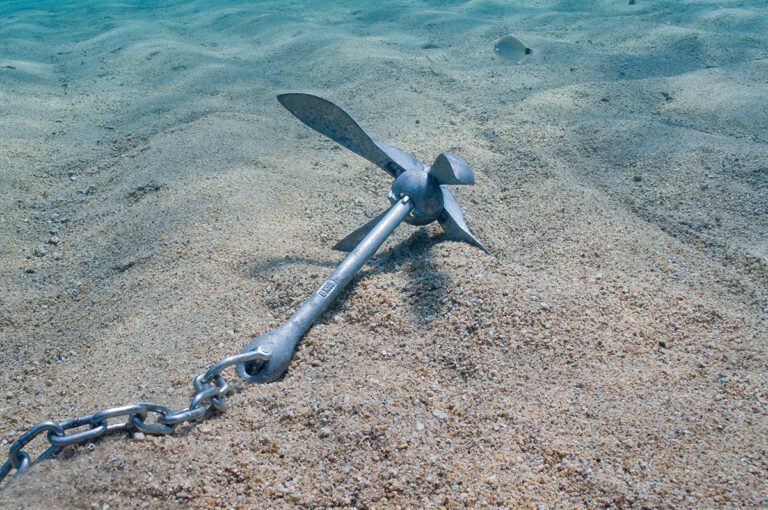So you didn’t listen to me. The anchor was not set correctly, you didn’t put out that stern anchor, and now you have some weather. There’s a good chance you’re going to drag. That’s what happens when you don’t consider all the elements that keep you secure. It’s easy to be cavalier when you’re focused on what you want to do next. There are a lot of fun and exciting things out there after a long day on the water, but as the day churns in and the wind builds, you start to drag. The thing with dragging is that it often happens slowly, unlike breaking loose. Each gentle nudge of the wind and water tugs you away just a little bit. In life, many things can make you drag. I’m thinking now about someone in my life who was in an emotionally toxic relationship. It was always just a word, or a careless comment made as a joke, that stripped away the sand around her holding ground. No one was on watch to track the drag. They were living their own lives and checking their anchors, and rightfully so. But suddenly, her boat came down on them.
What do you do when you look up and see something that may strike? Your first instinct is to protect your vessel—throw out some fenders, stand at the bow and stern to fend off, and maybe even swear at the captain for not taking the same precautions, which now puts you at risk. These are all reasonable reactions. But here’s the thing…what if, instead of just protecting your boat, you hopped in the dinghy and went to help them protect theirs? Maybe they were single-handing and didn’t have an extra hand or another set of eyes to keep watch. It’s not always easy to be on the boat alone. By coming alongside, throwing them a line, or climbing aboard to take the wheel while they reset, you could make a difference. It’s not that difficult. You keep the boat into the wind so they can pull up the anchor, put it in forward gently to move back to a safer, more secure spot, and let them drop the anchor slowly while you provide input on the depth and what you would lay down. Give it a gentle tug in reverse to help set it, and then give the wheel back to them so they can decide when they feel secure enough to turn off the engine. Once all is quiet, you’ll realize that it took more time and energy to protect your boat than it did to help them with theirs. Don’t always think about fending off—hop in the dinghy and help reset.

